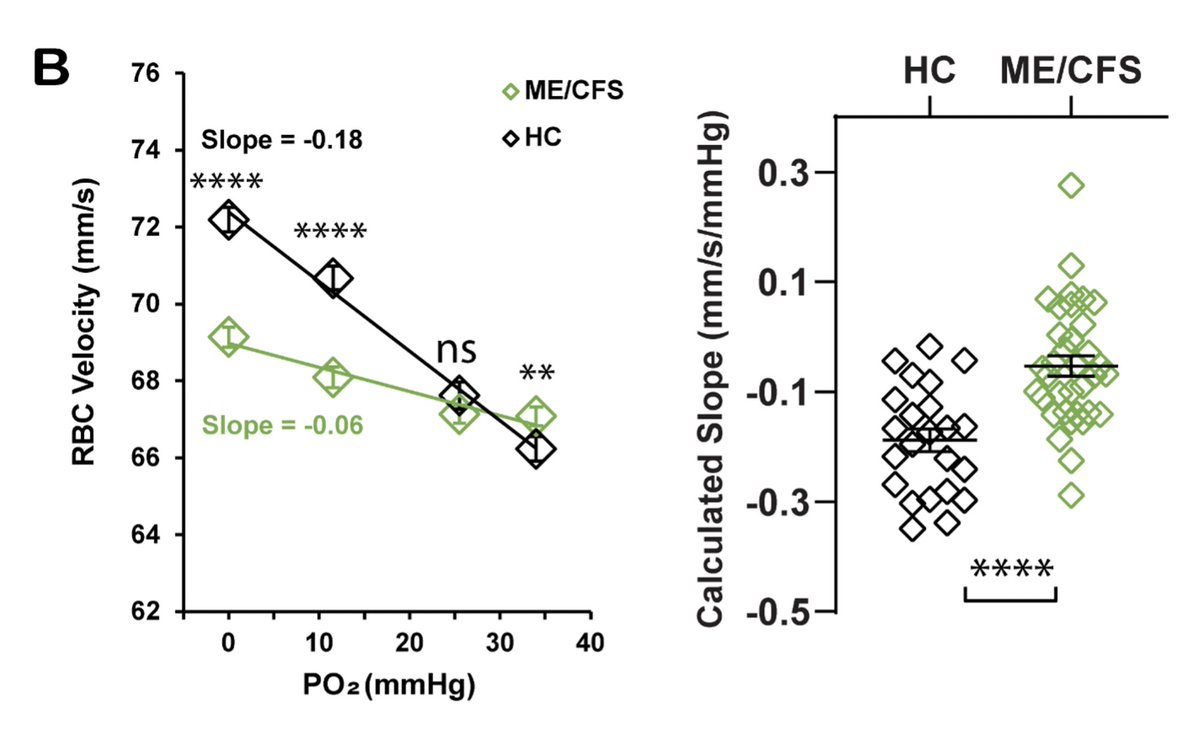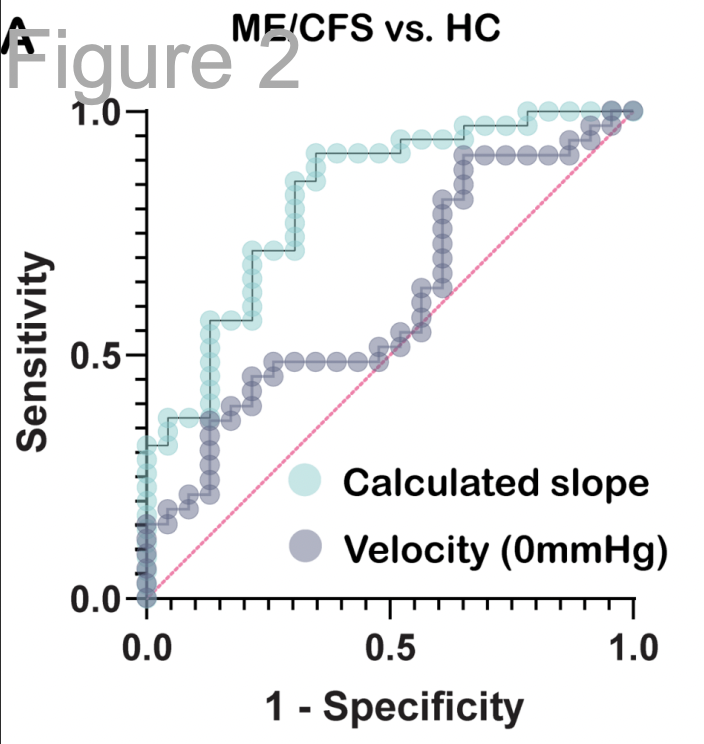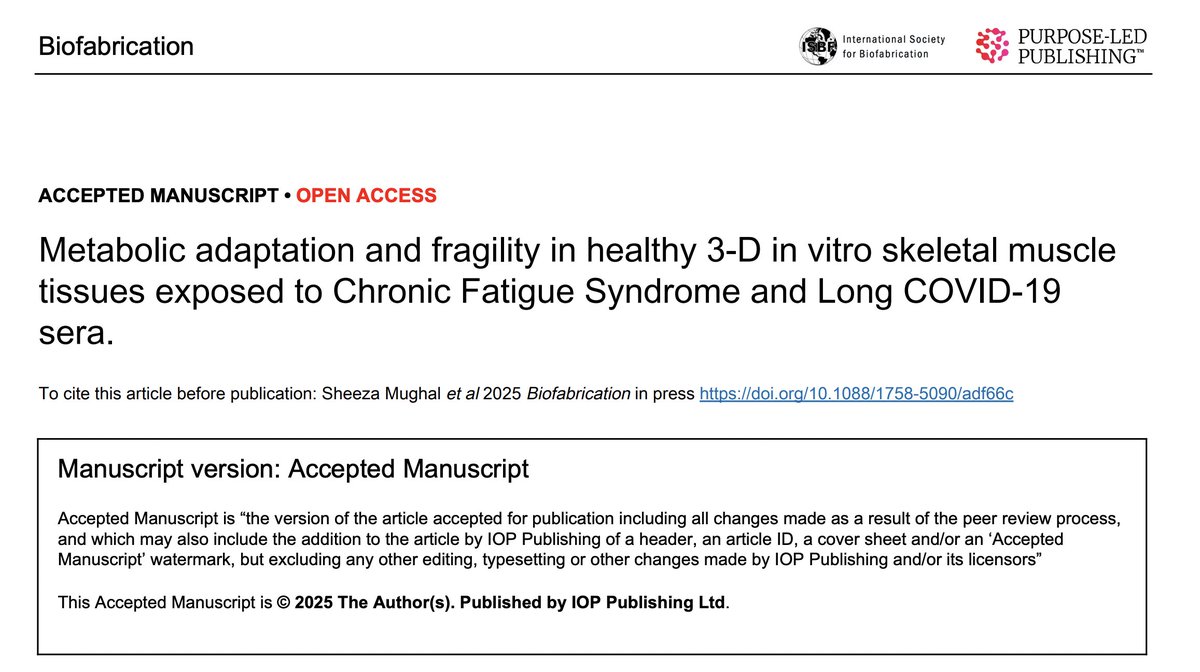1) 🩸 New paper by the team of Ronald Davis.
They found that red blood cells from ME/CFS patients are slower and less responsive to low oxygen levels in a lab device that mimics small blood vessels.
They found that red blood cells from ME/CFS patients are slower and less responsive to low oxygen levels in a lab device that mimics small blood vessels.

2) Previous studies suggested that red blood cells change their shape more easily when oxygen is low. That allows them to move faster through small blood vessels (capillaries) and deliver oxygen where it is needed.
3) The red blood cells of ME/CFS patients do this as well, but they are less responsive to lower oxygen levels.
At normal oxygen levels (normoxia with partial oxygen pressure of 20-60 mmHg), they flowed as fast, or even faster, as those from healthy controls.
At normal oxygen levels (normoxia with partial oxygen pressure of 20-60 mmHg), they flowed as fast, or even faster, as those from healthy controls.
4) But when oxygen levels were lowered (hypoxia with oxygen pressure of 0-12 mmHg), the blood cells of ME/CFS patients were less able to increase their speed, making them slower than red blood cells from controls.
5) Figure 1.B below shows the main findings. What differentiated ME/CFS patients was not so much the speed of the cells itself as the change in speed in response to oxygen tension.
You can see that the green slope of patients is much flatter.
You can see that the green slope of patients is much flatter.

6) The authors think this might help explain the cerebral blood flow problems that have been reported in ME/CFS. Poor oxygen delivery also plays a role in many theories of ME/CFS, including those on endothelial dysfunction and exercise intolerance.
7) Davis his team used machine learning to differentiate ME/CFS patients and controls. Their best model reached an accuracy of 77.8% and an AUC of 0.82.
(We have some doubts about how useful these metrics are...)
(We have some doubts about how useful these metrics are...)

8) Lastly, the authors tested two drugs, Salmeterol and Xanomeline, that are used to treat asthma and schizophrenia, respectively, and increase red blood cell deformability.
It seems that xanomeline worked the best at increasing RBC speed and responsiveness.
It seems that xanomeline worked the best at increasing RBC speed and responsiveness.
9) A caveat is that this was a small study with only 35 ME/CFS patients and 23 controls. These were not fully matched for sex (71% vs 60% females, although this didn't affect the slopes). They also found no difference between moderate and moderate-severe ME/CFS patients.
10) Link to the study (open-acces):
Gua et al. 2025. Microfluidic assessment of PO2-regulated RBC capillary velocity in ME/CFS
sciencedirect.com/science/articl…
Gua et al. 2025. Microfluidic assessment of PO2-regulated RBC capillary velocity in ME/CFS
sciencedirect.com/science/articl…
• • •
Missing some Tweet in this thread? You can try to
force a refresh










